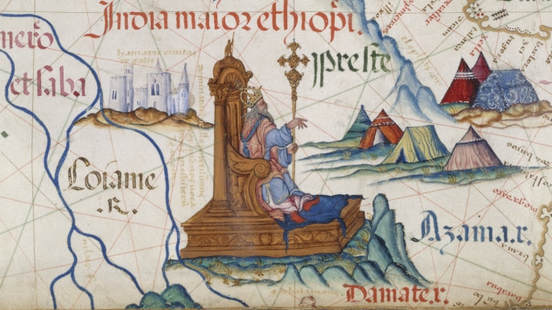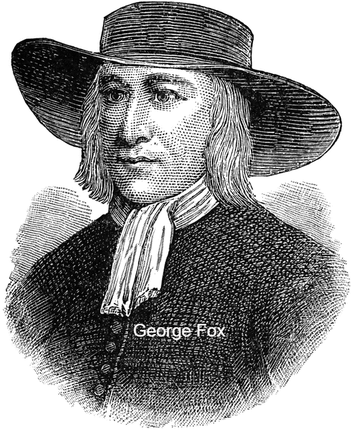The Land of Prester John
Prester John and the Bible

Initially, Prester John was presumed to live somewhere in East Asia. In the 14th and 15th centuries, emissaries of the Ethiopian empire and Ethiopian Tewahedo Orthodox Church visited Rome and Venice. Their piousness and erudite study of the Bible left an abiding impression on the European church. Subsequently, Europeans began to re-situate the mythical land of the Christian king in the mountainous East African empire.

In the late 16th and early 17th century scholars published a Bible in the English vernacular, subsequently to be known as the King James Version. The strength of Prester John's legacy is perhaps demonstrated by the fact that, when the scholars translated the Septuagint (the earliest extant Greek translation of the Old Testament from the Hebrew), they turned most mentions of "Kush" into mentions of "Ethiopia".
George Fox, the founder of the Quaker movement, made an early theological argument - at least by Europeans - concerning the harm of African enslavement in the Americas. Fox considered the "Ethiopians" of the Bible to be enslaved Africans. Soon, European abolitionists used Jeremiah 13:23 to argue for the end of slavery: "Can the Ethiopian change his skin, or the leopard his spots? then may ye also do good, that are accustomed to do evil." . Click here to explore another famous occurance of Ethiopia in the Bible.
George Fox, the founder of the Quaker movement, made an early theological argument - at least by Europeans - concerning the harm of African enslavement in the Americas. Fox considered the "Ethiopians" of the Bible to be enslaved Africans. Soon, European abolitionists used Jeremiah 13:23 to argue for the end of slavery: "Can the Ethiopian change his skin, or the leopard his spots? then may ye also do good, that are accustomed to do evil." . Click here to explore another famous occurance of Ethiopia in the Bible.
In all these ways the legend of Prester John came to refer to the prospect of African redemption, that is, deliverance from evil.